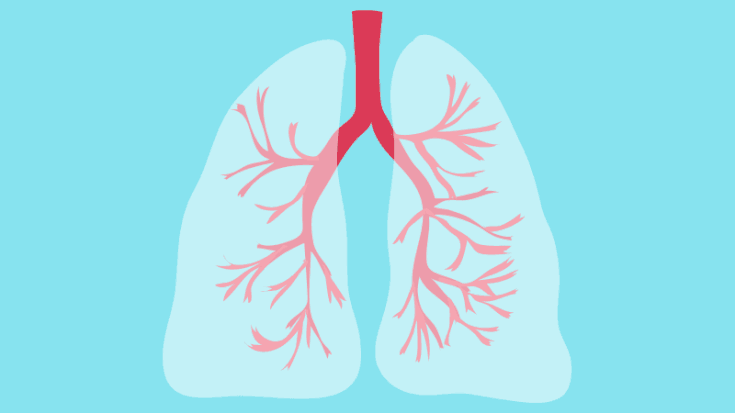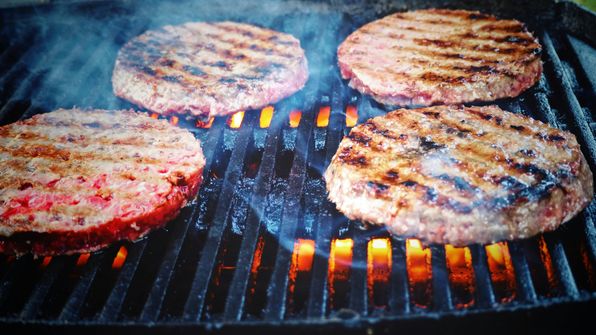
Social Success on the Carnivore Diet: Tips for Staying Committed at Gatherings and Restaurants
Social gatherings often mean a spread of carb-heavy foods and tempting desserts that can make sticking to the carnivore diet feel tricky. But with a b...

Living with Chronic Obstructive Pulmonary Disease (COPD) can make everyday activities feel like a marathon, especially for women who are juggling health, work, and family. While medications and therapies are essential, what you eat can also play a significant role in managing COPD symptoms and improving quality of life.
In 2024, more attention is being paid to innovative dietary strategies that go beyond the usual recommendations. These diets can help reduce inflammation, improve energy levels, and support lung function, all of which are crucial for living well with COPD. Let’s explore some less conventional, but effective, dietary approaches that can help you breathe easier.

For women with COPD, eating the right foods isn’t just about staying healthy—it’s about managing symptoms and making everyday life a little easier. The body uses more energy to breathe when you have COPD, which means nutrition becomes even more important. Certain foods can help reduce lung inflammation, improve muscle strength, and keep your immune system strong, making it easier to deal with the ups and downs of COPD.
Maintaining a healthy weight is also key. Being underweight can lead to muscle loss, including the muscles that help you breathe, while being overweight can make breathing more difficult. Finding the right balance with your diet can make a big difference in how you feel day-to-day.
Here are some of the most effective and unique diets that can help manage COPD, based on the latest research and expert recommendations.
The ketogenic (keto) diet is a high-fat, low-carbohydrate eating plan that has gained popularity for weight loss, but it’s also being explored for its potential benefits in respiratory conditions like COPD.
Why It Works: The keto diet forces the body to burn fats instead of carbohydrates for energy, which can lead to less carbon dioxide production in the body. For people with COPD, producing less carbon dioxide can make breathing easier. A study published in the American Journal of Respiratory and Critical Care Medicine found that a keto diet could help reduce shortness of breath and improve breathing efficiency in patients with chronic respiratory conditions.
Try This: Focus on healthy fats like avocados, nuts, seeds, and olive oil, while reducing intake of carbohydrates like bread, pasta, and sugar. Include moderate amounts of protein from sources like fish, poultry, and eggs. Always consult with your healthcare provider before starting a keto diet, especially if you have COPD.
The alkaline diet emphasizes eating foods that are believed to help balance the body’s pH levels. This diet includes plenty of fruits, vegetables, nuts, and seeds while avoiding acidic foods like meat, dairy, and processed foods.
Why It Works: An alkaline diet is thought to help reduce inflammation and mucus production in the body, which can be particularly beneficial for women with COPD. Some studies, such as those discussed in the Journal of Environmental and Public Health, suggest that an alkaline diet can improve respiratory health by reducing acid load in the body, potentially making it easier to breathe.
Try This: Load up on fresh fruits and vegetables, especially leafy greens, cucumbers, and berries. Include nuts and seeds as snacks, and minimize your intake of meat, dairy, and processed foods. Drinking plenty of water with a splash of lemon can also help maintain a more alkaline balance.
Intermittent fasting involves cycling between periods of eating and fasting. It has been popular for weight loss and metabolic health, but recent research is exploring its benefits for respiratory conditions as well.
Why It Works: Intermittent fasting may help reduce oxidative stress and inflammation, both of which are significant factors in COPD. A study published in Cell Metabolism found that intermittent fasting can improve mitochondrial function and reduce inflammation, which could help support better lung health.
Try This: Start with a simple fasting pattern, like the 16:8 method, where you eat during an 8-hour window and fast for the remaining 16 hours. Focus on nutrient-dense foods during your eating window, and avoid overeating. As always, talk to your doctor before starting any fasting regimen, especially if you have a chronic condition like COPD.
Originally designed to help manage symptoms of irritable bowel syndrome (IBS), the low-FODMAP diet is now being explored for its potential benefits for those with COPD.
Why It Works: FODMAPs are fermentable carbohydrates that can cause bloating and gas, which may make breathing more difficult for people with COPD. By reducing these foods, the low-FODMAP diet may help reduce bloating and improve lung function. Research in the Journal of Clinical Gastroenterology indicates that a low-FODMAP diet can reduce abdominal discomfort and improve quality of life, which may indirectly benefit breathing in COPD patients.
Try This: Limit foods high in FODMAPs, such as garlic, onions, beans, and certain fruits like apples and pears. Focus on low-FODMAP options like bananas, carrots, spinach, chicken, and rice. It’s best to work with a dietitian to ensure you’re getting all the nutrients you need while following a low-FODMAP diet.
The DASH (Dietary Approaches to Stop Hypertension) diet is typically recommended for lowering blood pressure, but it can also be adapted to support lung health for women with COPD.
Why It Works: The DASH diet emphasizes whole foods rich in potassium, calcium, and magnesium, which are important for muscle function, including the muscles involved in breathing. By reducing sodium and focusing on nutrient-rich foods, this diet can help reduce fluid retention and improve respiratory function. A modified DASH diet with a focus on anti-inflammatory foods can further benefit COPD management by reducing lung inflammation and supporting overall respiratory health.
Try This: Follow the standard DASH guidelines of eating plenty of fruits, vegetables, whole grains, lean proteins, and low-fat dairy, but also add more anti-inflammatory foods like fatty fish, nuts, and seeds. Be mindful of sodium intake, especially if you’re on medications that affect fluid balance.
Here’s a quick guide on what to eat and what to skip if you’re managing COPD:
A: Diet can’t cure COPD, but it can definitely help manage your symptoms better. Eating a balanced diet can support lung function, reduce inflammation, and help you maintain a healthy weight—all of which are important for managing COPD.
A: Focus on nutrient-rich foods like fruits, vegetables, lean proteins, whole grains, and healthy fats. Staying hydrated with fluids and water-rich foods is also key. These choices help keep your energy up and your lungs working their best.
A: Some supplements, like vitamin D, omega-3s, and antioxidants, may be beneficial, but you should always check with your doctor first. They can help you figure out what’s best for your specific needs.
A: The right amount of protein depends on your age, weight, and activity level, but aiming for 1.2 to 1.5 grams of protein per kilogram of body weight is a good general guideline. Talk to your doctor or a dietitian to get a personalized plan.
A: Yes, exercise can be great for maintaining your strength and lung capacity, but it’s important to start slow and not push too hard. Gentle activities like walking or stretching can be a good start. Always check with your doctor before starting any new exercise routine.
A: It’s best to avoid processed foods, sugary snacks, fried foods, and too much caffeine and alcohol. These can increase inflammation and make your symptoms worse.
A: Staying hydrated is really important for keeping your lungs clear and your body functioning well. Drink plenty of water, and include hydrating foods like fruits and veggies to help manage your symptoms.
This article is meant for general informational purposes and is not a substitute for professional medical advice. Always consult your doctor or a qualified health professional before making any changes to your diet, especially if you have COPD or other health conditions.
Living with COPD can be challenging, but with the right nutrition, you can support your lungs and overall well-being. By focusing on unique diets like the ketogenic, alkaline, intermittent fasting, low-FODMAP, and modified DASH diets, you can find strategies that help reduce inflammation, support muscle strength, and keep you hydrated. Remember, everyone’s experience with COPD is different, so find what works best for you and consult your healthcare provider for advice tailored to your needs.

Social gatherings often mean a spread of carb-heavy foods and tempting desserts that can make sticking to the carnivore diet feel tricky. But with a b...

The carnivore diet is often seen as straightforward: eat meat, keep it simple. But adapting it seasonally can bring freshness, variety, and local flav...

The carnivore diet has become increasingly popular, but like any extreme dietary approach, it raises important questions—especially for women concerne...

The carnivore diet has gained attention globally, but women’s experiences and cultural approaches to animal-based eating vary widely depending on wher...

recovering from COVID-19 can be a long journey, especially for women who may face lingering symptoms like fatigue, brain fog, and muscle weakness. Whi...